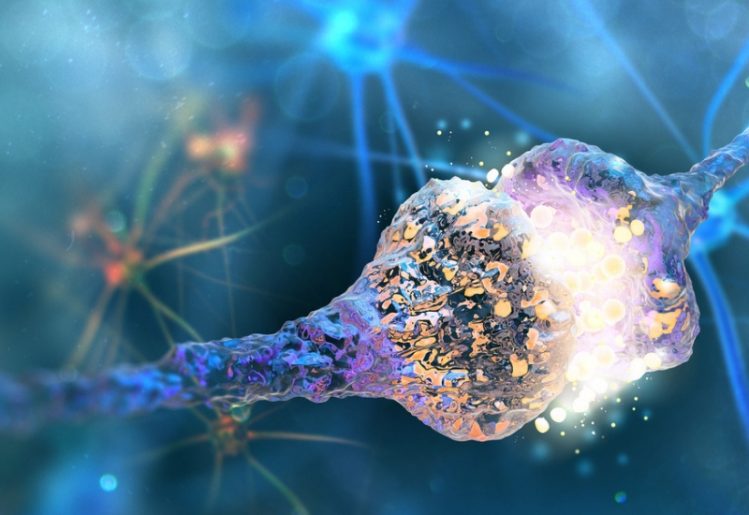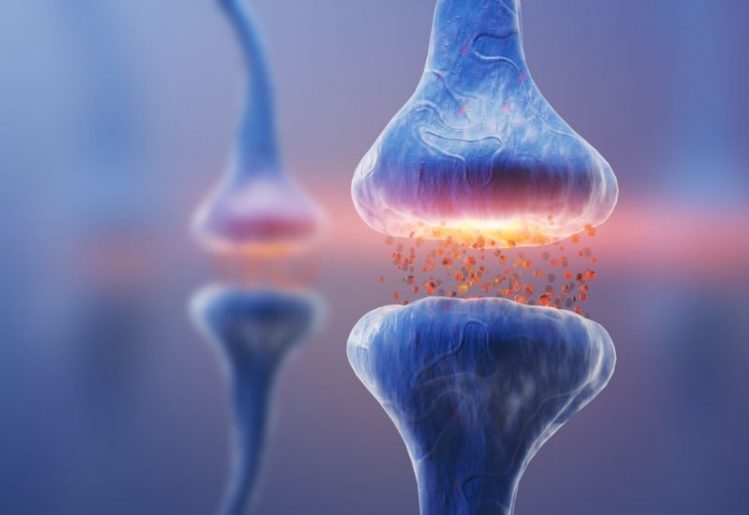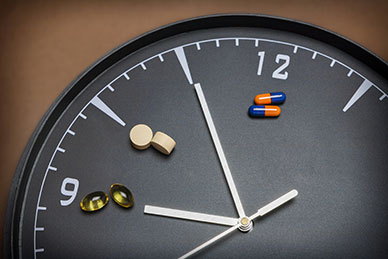No matter how diligent you are in trying to consume a diverse range of fruits, vegetables, nuts, seeds and whole grains, you can never be certain that your body is getting all of the nutrients it needs every day. This is why adding a multivitamin supplement to your daily routine can be beneficial, and may become even more essential as you grow older. A supplement based on chronobiology delivers the greatest health benefits, because it provides specific nutrients exactly at the time of day when they’re most needed.
Why Should Every Adult Take a Multivitamin Supplement?
 We know that eating nutritious meals is important, because fruits, vegetables and other healthy foods provide essential nutrients and vitamins. Each type of food contains specific vitamins and nutrients that our bodies use to help us stay healthy. Similarly, each vitamin and nutrient plays a different role in the body, which is why eating a diverse range of foods is also important.
We know that eating nutritious meals is important, because fruits, vegetables and other healthy foods provide essential nutrients and vitamins. Each type of food contains specific vitamins and nutrients that our bodies use to help us stay healthy. Similarly, each vitamin and nutrient plays a different role in the body, which is why eating a diverse range of foods is also important.
For instance, the vitamin C found in foods like broccoli, cantaloupe and cauliflower helps us maintain a strong immune system, promotes healthy bone density and helps the body produce collagen.
Taking a multivitamin supplement can ensure that your body is getting an adequate supply of most nutrients every day, so you won’t suffer from a deficiency. Additionally, as you grow older, your body may experience difficulty in absorbing all of the nutrients from the foods you eat, so taking a supplement can help make up for that loss.
Aside from the individual functions that each vitamin serves in the body, vitamins can be divided into two groups which each benefit the body differently. Water-soluble vitamins help enzymes in the body transform proteins, carbs and fats into energy. Without a sufficient supply of water-soluble vitamins, this process won’t be as efficient and weight gain could result. Fat-soluble vitamins help form and maintain cell membranes, so a deficiency of these vitamins means that the body’s cells won’t be fully protected and may become damaged. A deficiency of fat-soluble vitamins results in high-functioning cells being unable to function as they should.
What is Chronobiology?
Simply defined, the study of chronobiology examines how the functions of your body are regulated by the body’s biological clock, or circadian rhythm. The circadian rhythm is primarily controlled by fluctuations in light and darkness, and uses the changing of day into night as a cue to regulate wakefulness versus sleepiness.
Additionally, this rhythm helps determine which biological functions should occur at specified times of day. This helps the body release hormones that tell different parts of the body when to work faster, when to slow down and when to rest. As a result, your body’s processes change from hour to hour, whether or not you notice these changes.
As you age, your internal clocks can slow down and, in some cases, may stop altogether. This leaves seniors more vulnerable to disease and adverse health conditions, which is why sleep disorders often go hand-in-hand with other health conditions. In fact, over 80 illnesses have been associated with a compromised circadian rhythm, pushing researchers in the field of chronobiology to explore how problems with our biological rhythms can lead to disease.
The Benefits of Taking a Supplement Based on Chronobiology
Staying healthy involves helping your circadian rhythm function more efficiently each day. The first consideration is to ensure that you get a full seven to eight hours of sleep each night, but there are many more things you can do to keep your biological clock functioning correctly. For instance, exposing yourself to natural sunlight during the day and making sure your bedroom is as dark as possible at night will also help your circadian rhythm function better.
It is also best to take a multivitamin supplement based on chronobiology to ensure your body is getting the right vitamins at times of day when they will do the most good. Both the Vitachron Male formula and Vitachron Female formula are engineered to ensure that necessary vitamins and nutrients are released at the time of day when they are most needed by the body.
When Does Each Vitamin and Mineral Work Best?
Many vitamins and minerals work best when taken at certain times of day. For example, vitamins A, D, E and K are best absorbed in the morning hours and when taken with calcium. Additionally, vitamin C acts as a stimulant, causing the adrenal gland to become more active. This is why, like vitamin B6, vitamin C should be taken in the morning to avoid evening sleep problems.
Selenium should also be taken in the morning, because when it interacts with vitamins A, C and E, it acts as a powerful antioxidant. Taking selenium along with vitamin E also allows these two nutrients to work in synergy with each other. The morning doses of Vitachron Male and Vitachron Female contain all of these powerful nutrients, and more.
The evening doses of the Vitachron Male and Vitachron Female formulas provide the remaining B vitamins, excluding B6. These vitamins promote a better sleep cycle and negatively interact with calcium, which is why they’re best taken in the evening hours and apart from calcium. Specifically, B3 converts tryptophan to serotonin and melatonin, which are hormones essential to the proper functioning of the sleep cycle.
 Magnesium is best taken at night, because it helps improve the functioning of the neurotransmitters associated with sleep. Since magnesium compliments zinc, potassium and chlorine, these compounds are also included with the evening dose of Vitachron Male and Vitachron Female.
Magnesium is best taken at night, because it helps improve the functioning of the neurotransmitters associated with sleep. Since magnesium compliments zinc, potassium and chlorine, these compounds are also included with the evening dose of Vitachron Male and Vitachron Female.
Iron and copper are also utilized better when taken at night. Not only are they better absorbed by the body at night, but when taken in the morning with calcium, these compounds can actually cause calcium to become a harmful pro-oxidant. Folic acid has a synergistic relationship with iron, so it should also be included along with iron in the evening dose of any multivitamin supplement.
As this overview shows, a supplement that’s based on your body’s circadian rhythm will provide you with the best protection against illness and adverse health conditions while allowing your body to better utilize each ingredient. Vitachron is a multivitamin supplement based on chronobiology that provides the nutrients your body needs at the times you need them, so your biological systems will function more efficiently. This will help to provide better quality of life, while also helping you feel your best each day.
 Research into chronobiology has determined that every organ in the body, as well as certain biological processes, have their own 24-hour rhythms. By researching these rhythms and studying how they are affected by different chemical compounds, researchers can determine which nutrients should be introduced into the biology of an individual at a given time of day for optimum effectiveness.
Research into chronobiology has determined that every organ in the body, as well as certain biological processes, have their own 24-hour rhythms. By researching these rhythms and studying how they are affected by different chemical compounds, researchers can determine which nutrients should be introduced into the biology of an individual at a given time of day for optimum effectiveness. Acting as an antioxidant,
Acting as an antioxidant,  It is almost impossible to read the latest health news without learning about the benefits of omega-3 fatty acids. These oils, which are found naturally in fish, flaxseed and a variety of other sources, have been found in studies to have
It is almost impossible to read the latest health news without learning about the benefits of omega-3 fatty acids. These oils, which are found naturally in fish, flaxseed and a variety of other sources, have been found in studies to have  An omega-3 fatty acid supplement is not right for everyone; there are certain people who should talk to their doctor about whether this oily pill should have a permanent place in their medicine cabinet. If you do not regularly eat fatty fish or high omega-3 plant oils, you may want to consider taking a supplement. This essential fatty acid is simply too essential to completely do without.
An omega-3 fatty acid supplement is not right for everyone; there are certain people who should talk to their doctor about whether this oily pill should have a permanent place in their medicine cabinet. If you do not regularly eat fatty fish or high omega-3 plant oils, you may want to consider taking a supplement. This essential fatty acid is simply too essential to completely do without. Like many B vitamins, vitamin B6 is best known for its
Like many B vitamins, vitamin B6 is best known for its  Because vitamin B6 is important to the manufacture of serotonin, it is best taken when we first awake in the morning. We sleep more soundly and dream best when our serotonin levels are low. On the other hand, we benefit from a boost of serotonin during the day. Taking B6 as well as other energy-promoting vitamins in the morning just may give you the extra energy and mood boost that you need to get the day to a pleasant and productive start.
Because vitamin B6 is important to the manufacture of serotonin, it is best taken when we first awake in the morning. We sleep more soundly and dream best when our serotonin levels are low. On the other hand, we benefit from a boost of serotonin during the day. Taking B6 as well as other energy-promoting vitamins in the morning just may give you the extra energy and mood boost that you need to get the day to a pleasant and productive start.
 All living creatures have
All living creatures have  While we now understand more about the circadian rhythm than we ever have, modern life makes maintaining a stable internal clock a greater challenge than ever before. People are working increasingly erratic hours due to a planet where the business day never stops. Many people work odd shifts that keep them from waking and going to bed at a regular time. Travel for work and personal reasons has made jet lag a common affliction. Even simple things like daylight savings time can throw internal clocks off kilter.
While we now understand more about the circadian rhythm than we ever have, modern life makes maintaining a stable internal clock a greater challenge than ever before. People are working increasingly erratic hours due to a planet where the business day never stops. Many people work odd shifts that keep them from waking and going to bed at a regular time. Travel for work and personal reasons has made jet lag a common affliction. Even simple things like daylight savings time can throw internal clocks off kilter.